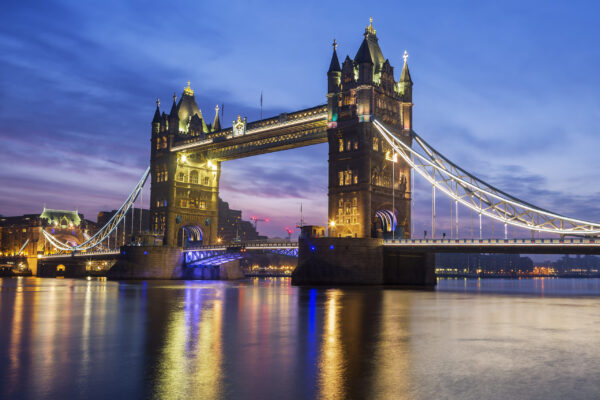England’s historic cities are moving closer to joining their European counterparts in implementing a tourist tax, as soaring visitor numbers begin to strain public services and cultural sites. Bath and Cambridge, two of the country’s most visited destinations outside London, are actively exploring the introduction of a structured tourism levy aimed at sustaining local infrastructure and protecting historic assets.
This potential policy shift would align England with France, Italy, Spain, the Netherlands, and Greece—countries that have long adopted tourist taxes to counteract the downsides of mass tourism. With millions arriving annually to walk ancient streets, admire iconic architecture, and soak in centuries of history, local leaders say the time has come for tourists to contribute more directly to the places they enjoy.
Visitor Growth: Boon and Burden for Historic Cities
Bath, famed for its Roman baths and Georgian townhouses, draws over six million visitors each year. Cambridge, home to one of the world’s oldest universities, attracts more than seven million annually. While tourism supports thousands of local jobs and injects vitality into the economy, the sheer volume of guests has put immense pressure on transport systems, sanitation, public safety, and the upkeep of heritage sites.
Local councils argue that without direct visitor contributions, the financial burden of maintaining these services continues to fall disproportionately on residents—many of whom see limited economic return from tourism.
“We welcome visitors, but we need a fairer way to fund the impact of their stay,” said a Bath city official. “A modest nightly tax can go a long way in protecting what makes these cities special.”
Proposed Tourism Levy: A Model for Sustainable Travel
The proposed system would involve a small per-night fee collected from overnight guests staying in hotels, bed-and-breakfasts, or short-term rentals. The funds would be dedicated to a local tourism infrastructure fund, with spending allocated for street cleaning, historical restoration, public transport, safety services, and cultural programming.
This approach mirrors successful models implemented in Barcelona, Amsterdam, Venice, and Athens, where tourists routinely pay between €1 and €5 per night without significant complaints—especially when the purpose of the tax is transparent and clearly reinvested in the destination.
Uneven Legislative Landscape Across the UK
In contrast to Scotland and Wales, where legislation empowers local councils to introduce tourism taxes, English councils currently lack statutory authority to implement such levies independently. Instead, they must rely on voluntary arrangements like Accommodation Business Improvement Districts (Accommodations BIDs), which require majority support from local businesses.
This patchwork approach has hampered English cities’ ability to respond to the rising cost of tourism. Bath and Cambridge now intend to lobby the UK government for legislative reform, arguing that destination cities need the same tools available to their devolved counterparts.
Should Parliament approve such powers, other iconic cities such as Oxford, York, and Canterbury could swiftly follow suit.
Industry Reaction: Support and Skepticism
The proposal has drawn mixed reactions from the travel sector. While many local authorities and community groups welcome the move, some hoteliers and tourism operators express concern that added costs could discourage overnight stays, especially among budget travelers.
“There’s a risk that tourists may opt for day trips over extended visits if costs increase,” said one hospitality executive in Cambridge. “This could reduce the economic benefit of longer stays.”
However, international precedent suggests otherwise. In cities with established tourism taxes, visitors generally accept the surcharge, provided it is modest, well-communicated, and visibly tied to service improvements.
Protecting Heritage and Enhancing the Visitor Experience
Proponents of the levy stress that the goal is not to reduce tourism but to ensure that it remains sustainable, equitable, and beneficial for all stakeholders. By reinvesting revenue in infrastructure and cultural preservation, cities can improve the experience for both residents and visitors.
As crowding, waste, and transportation delays become more noticeable during peak seasons, public support for action is growing. In Bath, the proposed tax is scheduled for formal discussion during the July 17 council meeting, where initial feedback suggests wide backing.
Lessons from Europe: Proven Pathways to Sustainable Tourism
Countries like France, Spain, Italy, the Netherlands, and Greece have demonstrated how visitor taxes can support long-term tourism strategies. In Amsterdam, funds are used for public transportation upgrades and canal maintenance. In Venice, day-tripper charges help manage overcrowding. Paris channels its hotel tax into cultural programs and urban beautification.
These case studies offer valuable guidance for English cities now seeking to preserve heritage while meeting modern demands.
The Future of Tourism Management in England
As global travel continues to grow, balancing economic benefit with cultural preservation is becoming a critical task for heritage cities. For Bath and Cambridge, the proposed visitor tax represents a strategic investment in their own future—a way to ensure the very attractions that draw millions can withstand time, traffic, and transformation.
If implemented, the levy could mark a turning point in how tourism is managed in England, bringing it into alignment with international standards and empowering local authorities to act in their communities’ best interests.
With national discussions gaining momentum and early pilot proposals under consideration, the question is not whether England will adopt tourist taxes—but how quickly cities will gain the authority to do so, and how equitably those funds will be used to create lasting impact.
Conclusion: A Shift Towards Fairer Tourism in England
Bath and Cambridge are setting the stage for what could become a nationwide movement toward responsible tourism funding. Their push for a visitor levy is about more than balancing budgets—it’s about ensuring tourism supports, rather than overwhelms, the communities and heritage it relies on.
As visitor numbers rise and local voices grow louder, the future of English tourism may well be decided in council chambers this year—starting with two cities that have seen both the benefits and burdens of global travel.
For more travel news like this, keep reading Global Travel Wire






















